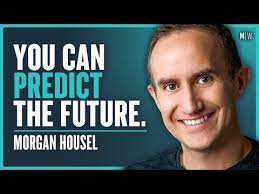I am writing this sat in the middle of the night in a hotel in Sofia on a tech dd project. Getting away is a good time to learn and reflect. During this trip I dug into Same As Ever, by Morgan Housel.
I was gifted this book earlier in the year by COO for SMBs Adam Park. It is so unusual to receive something physical nowadays, I appreciate the sentiment and the book.
How this book relates to Tech DD
As an investor you want to understand the future — to anticipate risks, gauge potential, and assess whether a company’s technology is fit for growth.
Yet ironically, the most useful lens for looking forward may not be futuristic at all.
In Same As Ever, Morgan Housel argues that while the world changes fast, human nature does not. For investors, founders, and diligence professionals, that’s a wake-up call: understanding people — not just products or platforms — is the ultimate edge.
Here’s how four core principles from Housel’s book can reshape your to Tech Due Diligence.
1. Risk is What You Don’t See Coming
“The riskiest stuff is always what no one’s talking about. Because if no one’s talking about it, no one’s prepared for it.”
Investors often ask us to identify red flags in a target’s technology. But the truth is, the biggest risks are rarely on the risk register. They’re the hidden dependencies. The undocumented knowledge in someone’s head. The way the founder reacts under pressure. These aren’t captured in metrics — but they show up in behaviour.
So we blend technical assessments with psychometric profiling, leadership interviews, and scenario testing. Why? Because resilience is about how a team handles the unknowns.
Risk isn’t always in the code — it’s often in the culture.
2. Stories Drive Valuation
“An investment is a company value today multiplied by a story of tomorrow”
I love this quote from Housel as it summarises how the dynamics of investment, due dilgence and storytelling intertwine with each other.
Valuation is rarely just a function of EBITDA multiples or ARR. The numbers matter, but investors really buy is the story of the future. Will this platform scale? Will the team adapt? Is there a vision that others want to follow?
That’s why our Vendor DD approach helps founders craft a credible growth narrative, supported by real capabilities. We don’t just validate tech — we show how it enables a strategy. We turn product backlogs into roadmaps. And we highlight where existing infrastructure supports future ambition.
Because in the end, a good story — grounded in truth — is more persuasive than any dashboard.
3. Human Behaviour is Predictable — and That’s a Good Thin
“The most important stuff never changes: people still panic, envy, rush, doubt, and dream. Always have, always will.”
In every deal, we see recurring behavioural patterns:
- Founders overestimate speed.
- Investors underestimate complexity.
- Everyone gets nervous close to completion.
Rather than fighting this, we plan for it. Our processes anticipate the emotional arcs of diligence — from the optimism of early-stage discovery to the paranoia of final QA.
More importantly, we assess not just technical systems, but team psychology. Is there trust? Alignment? Healthy conflict? These are timeless indicators of long-term value — especially when the pressure’s on.
4. AI Is “New” — Human Nature Is Not
Ok, it’s not that new. But you know what I mean. This current surge of interest in AI.
Artificial Intelligence might be the fastest-moving technology we’ve seen. But the motivations behind it? Centuries old.
- The desire to gain an edge.
- To move faster.
- To avoid hard work.
- To be seen as visionary.
These are deeply human drivers, baked into our evolution. When we assess AI-heavy businesses, we’re less interested in the latest model and more focused on how teams are making decisions with it: Is it augmenting judgment or replacing it? Are ethical risks being flagged — or fast-tracked? Is AI a tool in service of strategy, or a shiny object chasing relevance?
Just because the tech is new doesn’t mean the story is.
Due diligence on AI is still due diligence on people.
Looking Forward by Looking Backwards, and Inwards.
Tech changes. Tools evolve. Frameworks go in and out of fashion. But the core job of diligence — and investment — remains the same: make good bets on people.
By embracing the timeless truths of human nature, we can stop pretending to predict the future — and start preparing for it.
Because while technology is a lever, it’s still humans pulling it.
Want to explore how these ideas apply to your next deal?
Let’s talk: beyond-ma.com
If you want to learn rmore from Morgan Housel I recommend his Podcast:




